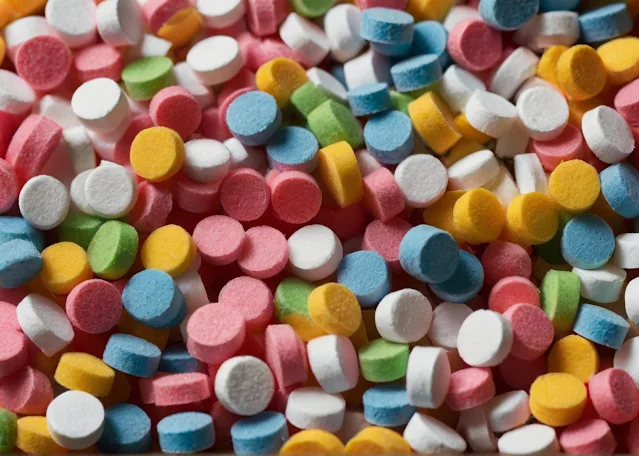Artificial sweeteners have gained wide usage as sugar replacements in food and beverage items. Called a no-calorie or low-calorie sugar replacement, they offer the taste we desire minus the shame. Nevertheless, their implications for the health of humans have been raised. This essay we are going to deal with the subject and examine the results of breaking down the fallacy of substituting sugar with artificial sweeteners.
Weight Management:
One of the main purposes people resort to artificial sweeteners is their ability to help with weight loss. Nevertheless, research on this topic is inconclusive. Several researches highlight that artificial sweetener may be able in preventing the number of calorie consumed and losing weight by adding sweets instead of sugar with higher calories. On the other hand, other studies have reported a connection between artificial sweeteners and weight gain which could be caused by their effect on appetite, cravings, and metabolism. Additional research is required to comprehend their effect on weight management fully.
Blood Sugar and Insulin Response:
The product was launched in the market by the week-end.Usually artificial sweeteners are advertised to people with diabetes or those who want to regulate their blood sugar levels. Unlike sugar, artificial sweeteners do not increase blood glucose levels significantly and minimal effect on insulin response. This is also good for person with diabetes and the blood sugar management team. Nevertheless, it should be mentioned that some studies indicate possible connection between artificial sweeteners and insulin resistance that may pose long-term risks for metabolic health. Further study is required to explain this connection.
- Aspartame: Aspartame which is known as one of the most used artificial sweeteners can regularly be seen in diet sodas, sugar-free chewing gum, and low calorie desserts. It is about 200 times sweeter than sugar and is constructed of aspartic acid and phenylalanine.
- Sucralose: Sucralose is the other widespread artificial sweetener that is 600 times sweeter than sugar. It is widely used in a variety of food and beverage products, for example, diet sodas, baked products, and sugar-free syrups. Sucralose has a reputation as a stable compound under high temperatures, therefore, its usage in cooking and baking applications is not limited.
- Saccharin: Saccharin, an artificial sweetener, has been widely used for many years and it is 300-500 times sweeter than sugar. It is mostly found in tabletop sweeteners, diet sodas, and processed foods. Saccharin was the first artificial sweetener to be found and it is distinguished for its prolonged sweetness.
- Acesulfame Potassium (Ace-K): Acesulfame potassium, commonly referred as Ace-K, is often utilized together with other artificial sweeteners to improve the sweetness. It is around 200 times sweeter than sugar. It can be found in diet sodas, baked products and sweet snacks.
- Neotame: Neotame is an intensely sweet artificial sweetener which is roughly 7,000 to 13,000 times as sweet as sugar. It is used in many food and beverage products like diet drinks, desserts and confectionery. Neotame is resistant to heat and maintains its sweetness in high temperature uses.
- Stevia: Stevia however is not a strict artificial sweetener but a natural sweetener which is obtained from the leaves of the stevia plant. It is much sweeter than sugar. Its derivatives, like stevioside and rebaudioside, are used as sweeteners in different foods and beverage industry products. Stevia is usually used for reduced-calorie drinks, flavored waters and some desserts.

